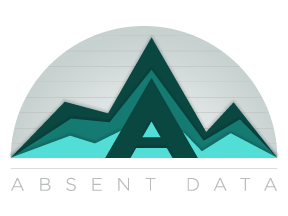Stop Using Excel as a Database: Here’s Why
Excel is an amazing spreadsheet and analysis tool. Without a doubt, Excel can handle some data, but when it comes to big, complex datasets, it’s like trying to fit Shaquille O’Neal into a clown car – you’re just asking for trouble! And let’s not forget about data integrity – one slip of the finger and you’ve accidentally deleted a whole row of data faster than you can say “oopsie daisy.” And don’t even get me started on backup and recovery – if Excel were a superhero, its arch-nemesis would be the “Delete” key. So, if you want your data to be safe and secure, and not have to worry about it disappearing into the abyss of your computer’s recycle bin, do yourself a favor and use a real database. Trust me, your data and your sanity will thank you!
Quick Summary of the areas where Excel fails when compared to a database.
- Storage Capacity
- Data Integrity
- Backup & Recovery
- Data Access
- Security
- Performance
Limited Storage Capacity
Excel is designed to handle a limited amount of data. Excel 2019, for instance, has a maximum of 1,048,576 rows and 16,384 columns per worksheet. While this may seem like a lot of data, it can be quickly exceeded in a data-intensive environment. Databases, on the other hand, can handle vast amounts of data with ease. You can Bypass Excel Storage Limits with Power Query
Limited Data Integrity
Excel has no built-in mechanism for maintaining data integrity. If a user enters invalid data or accidentally deletes a row or column, there is no way to recover the original data. Databases, on the other hand, are designed to maintain data integrity, ensuring that data is accurate and consistent.
No Backup and Recovery
Excel does not have a built-in backup and recovery mechanism. If a user accidentally deletes an Excel file or the file becomes corrupted, it may not be possible to recover the lost data. Databases, on the other hand, have built-in backup and recovery mechanisms to ensure that data can be restored in the event of a problem.
Limited Data Access
Excel files can only be accessed by one user at a time. This can create problems in a collaborative environment where multiple users need to access and update the same data. Databases, on the other hand, can handle multiple users accessing and updating data simultaneously.
Limited Data Security
Excel does not have robust security mechanisms to protect data from unauthorized access. Anyone with access to an Excel file can view and modify its contents. Databases, on the other hand, have robust security mechanisms to ensure that data is protected from unauthorized access.
Limited Data Performance
Excel is excellent at performing simple data analysis, but it can quickly become overwhelming when trying to analyze large data sets. Databases are designed to handle complex data analysis with ease and can provide more sophisticated analysis tools.
Where Should You Store Your Excel Sheets?
To ensure scalability, accessibility, security, and efficient management of your data, it’s recommended to opt for a database storage solution. The specific choice of database will depend on factors such as the type and size of data, accessibility requirements, and cost considerations. But overall, choosing a database is a smart move for effective data storage and management.
What is a Database?
A database is a collection of related data that is stored and organized in a way that allows for efficient retrieval and manipulation of the data. A database can be managed using various database management systems (DBMSs), including Microsoft Access.
Microsoft Access is a desktop-based DBMS that provides an easy-to-use interface for creating and managing databases. It is designed for small to medium-sized businesses and individuals and is often used for managing and analyzing data in a single-user environment. However, compared to other DBMSs, Microsoft Access is more limited in terms of scalability and multi-user access. Additionally, it is limited to a maximum file size of 2 GB, which can be a limiting factor for some applications.
Create Your First Database with Ease
In summary, a database is a collection of related data that can be managed using various DBMSs, including Microsoft Access. While Microsoft Access is a useful tool for small-scale data management, larger projects may require more robust DBMSs that can handle larger amounts of data and multiple users.
Pros and Cons of Storing Files in Excel
| Pros | Cons | |
|---|---|---|
| Excel | – Easy to use | – Limited storage capacity |
| – Commonly available | – Limited data integrity | |
| – Good for simple data analysis | – No backup and recovery | |
| – Limited data access | ||
| – Limited data security |
Pros and Cons of Storing Files in a Database
| Database | – Provides better data integrity | – More complex to set up and manage |
| – Can handle large amounts of data | – More expensive than Excel | |
| – Can handle complex data analysis | – Requires more technical knowledge | |
| – Provides better data security | – May require more training | |
| – Supports multi-user access | – Limited scalability |
Pros and Cons of Storing Files in Microsoft Access
| Pros | Cons | |
|---|---|---|
| Microsoft Access | – Offers database functionality | – Limited to 2 GB file size |
| – Provides easy-to-use interface | – Can be slow with large datasets | |
| – Can import and export data easily | – Limited scalability | |
| – Not suitable for web applica |
